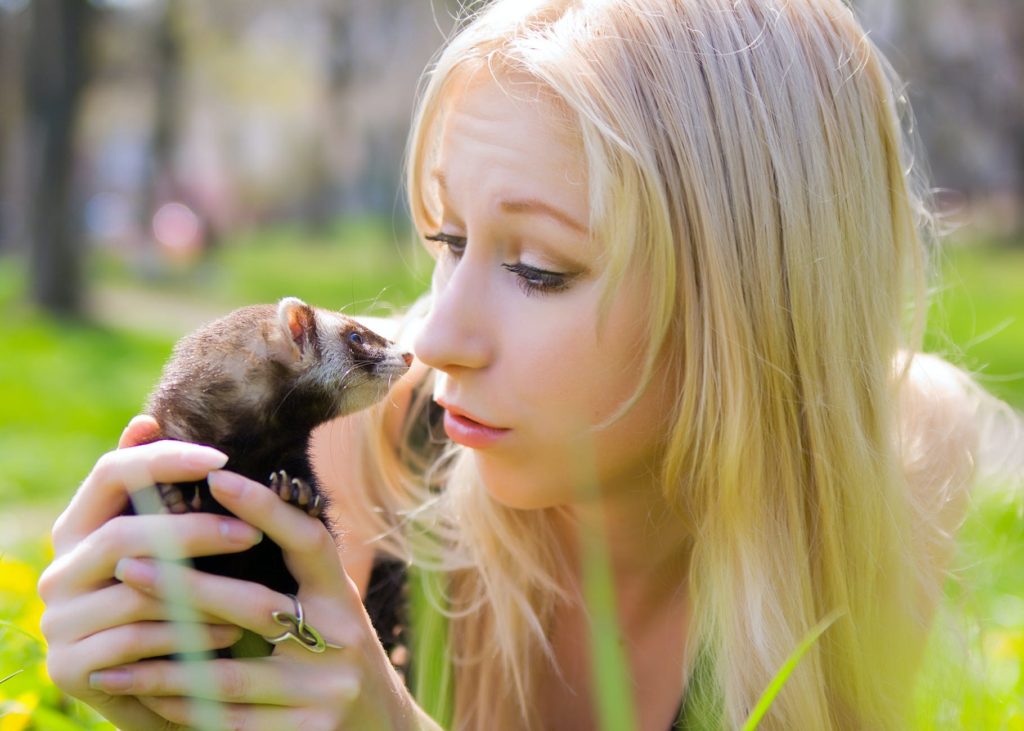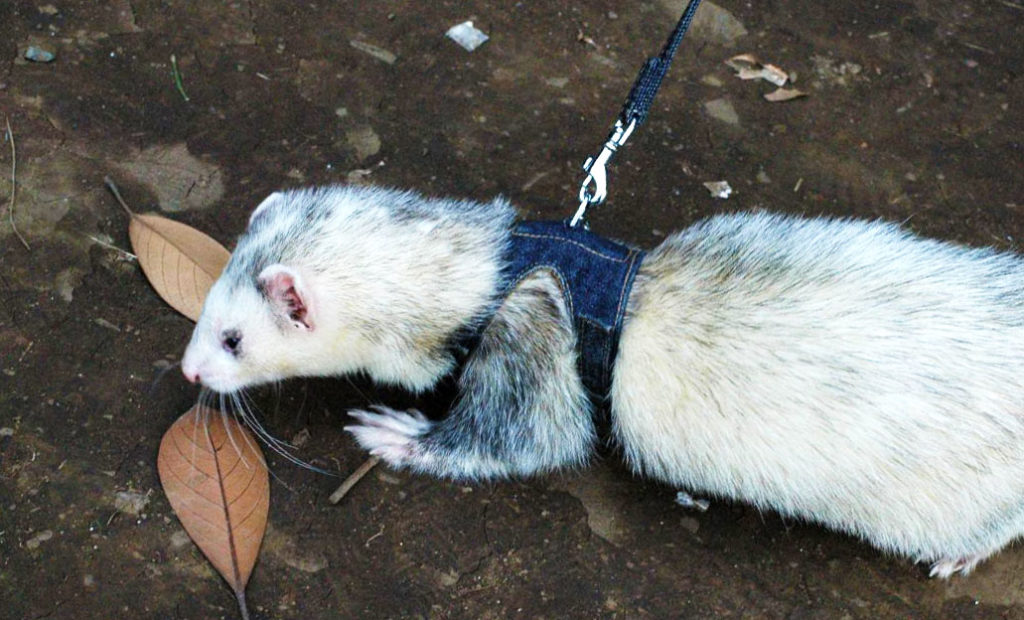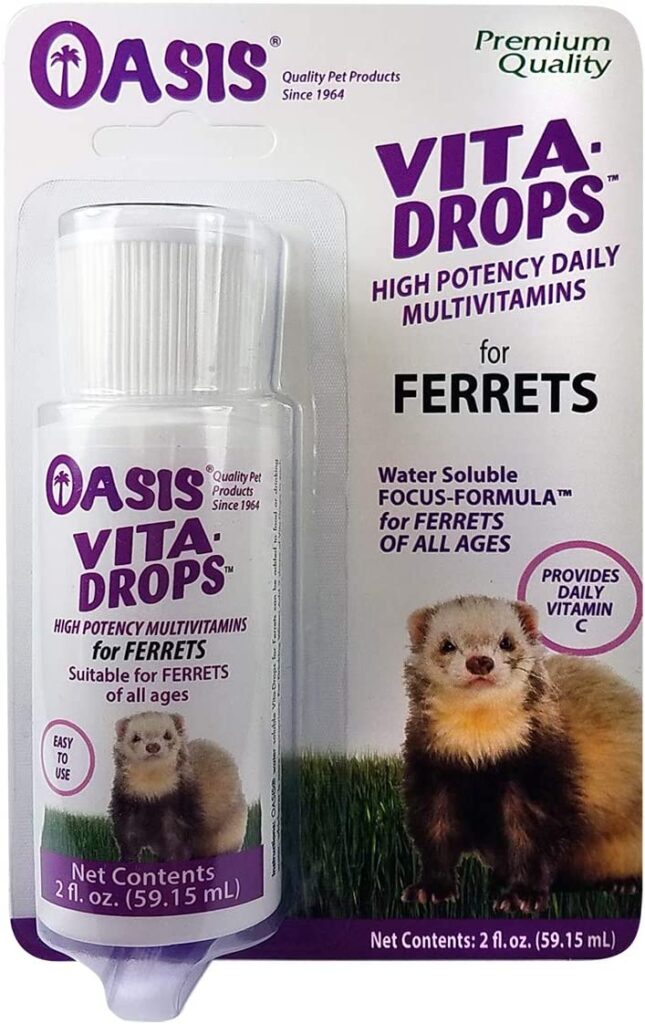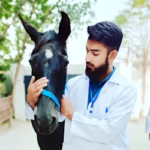Here you can find a “ferret vet near me”
Simply fill in your zip code to open a map showing ferret vets near you.
Since you’re here, why not get some advise at our ferret forum?

Basic Care and Veterinary Needs of a Ferret
Abdul Basit Javed (DVM, RVMP)
Ferrets are very exquisite and outgoing animals and make lovely companions. The trend of owning ferrets is on the rise, however, you must keep in mind that compared to other pets like cats and dogs, ferrets have entirely different needs in terms of care and attention.
Generally, ferrets are hardy animals and are not prone to a lot of diseases if properly looked after. They have a few medical needs, such as the proper vaccinations, de-scenting, and de-sexing procedures, but other than that, all they require is a clean environment and a nutritious diet to keep them active and healthy.
If you are a ferret owner or planning to get one you have come to the right spot. In this article, our small animal veterinarian has put together all the necessary information regarding the basic care and medical requirements for ferrets, so read on.

Are ferrets easy to look after? Small aAnimal Vet Explains
In general, having a ferret is a very different experience from having other pets, as they have different housing, dietary, and health requirements. Ferrets can live up to 10 years and form strong relations with their owners during this time.
Ferrets enjoy playing and interacting with their owners and other ferrets since they are extremely social animals. They are mostly kept in cages because they are very good at escaping. However, they should be permitted to leave the cage at least once every day and ideally under the owner’s supervision.
Due to their quick metabolism and short digestive system, they need 6 to 8 meals a day. Ferrets might be your best option if you prefer quiet pets since they spend the majority of their time sleeping (16–20 hours per day).
Ferrets make adorable pets and can be held on occasion if properly socialized. They prefer to live in environments where the temperature is between 15 and 21 degrees Celsius. They are simple to care for only if you know the basics of ferret ownership and care, which is why it is recommended that you carry out research before committing to owning a ferret.
What are the basic care needs of ferrets?
In addition to a balanced diet and appropriate housing, ferrets also have some fundamental health needs that must be met to maintain their well-being. These basic needs are things that ferret owners can do themselves without the need for a ferret vet. These needs include the following:
Ear Health
Ear cleaning is an important aspect of ferret care as their ears produce a lot of wax which is normally red. Ear cleaning should be done once a month and should not be neglected. Luckily you do not need a ferret vet to accomplish this.
Here is how to clean ferret ears. A few drops of sterile ear cleaning solution should be placed in a ferret’s ears, and the ear should be gently rubbed. To get rid of the wax, the ferret will shake and turn its head.
To remove any remaining wax, use a soft cloth or cotton buds, but never insert a cotton bud into a ferret’s ear canal or you may damage it. Because ferrets live in a confined environment, they are susceptible to ferret ear mites, which should be checked every week. If the color of the wax is grayish and it has a grainy texture your furry fellow might have mites, take them to the vet for a confirmatory diagnosis and appropriate treatment.
Claw Health

Given their predatory nature, ferrets have very sharp claws that they use to hunt in the wild. These claws can snag on toys, carpets, and the wire of the cage, and breaking one can cause great pain and discomfort for the ferret. To protect both the ferret and its owners from harm, these claws should be clipped regularly.
A ferret’s claws should be trimmed every two weeks, and a human nail clipper can be used for this. Avoid cutting the pinkish core of the nail, which contains blood vessels and nerves.
Apply septic powder right away to stop the bleeding if you unintentionally cut the fleshy portion of the claw. Keep in mind to trim the claws at an angle so that they are parallel to the ground when a ferret stands up.

Check out our Amazon store for great deals on fun and stylish gear for you and your ferrets 🙂
Coat Maintenance
Ferrets are excellent self-groomers and require no assistance from their owners except when they are shedding. They do, however, possess scent glands that release a musky scent. Many people will bathe them to get rid of the smell, but this is only a short-term solution.
You can bathe them a few times a month, but doing so increases the likelihood of pneumonia, hyperthermia, and other illnesses, especially during the winter months, so it’s best to have their scent glands removed permanently.
Dental Health
Ferrets have sharp teeth that can deliver a painful bite. It is crucial to keep ferrets’ teeth healthy because it has a significant impact on their general well-being. At least twice a year, you should have them examined by a veterinarian for a check-up. Offer them large bones and dry food on occasion to keep their teeth clean, and never use human toothpaste to clean their teeth as it can be toxic to them.
Hairballs
Due to their tendency to overgroom, particularly when they are shedding, ferrets are prone to developing hairballs. By regularly changing their bedding and brushing their fur during the shedding season, you can reduce the likelihood of hairballs in ferrets.

What are the veterinary needs of ferrets?
If you need a veterinarian, enter your zip code above to find a “ferret vet near me”. It is important to find a good ferret vet. However that being said, there are only a few medical needs for ferrets which are listed below:
Vaccinations performed by a ferret vet near me
Similar to cats and dogs, ferrets also require annual vaccinations to prevent life-threatening diseases. Ferrets should be vaccinated against rabies and distemper as soon as they reach the age of 16 weeks. Once they have received their initial vaccinations, ferrets only need annual boosters.
De-sexing procedures from a ferret vet near me
Spaying and neutering a ferret is an effective way to prevent certain diseases and improve their behavior. It is important to have your ferrets neutered and spayed before they reach sexual maturity if you don’t want to breed them. In female ferrets, it aids in the prevention of diseases like pyometra. In male ferrets, it promotes calmness and socialization.
De-scenting procedure done by a ferret vet near me
The anal glands in ferrets are primarily responsible for their characteristic odor. A ferret’s anal sacs are surgically removed during the de-scenting procedure. By undergoing this procedure, their musky odor will be significantly reduced, and they will become more appealing to their owners.



